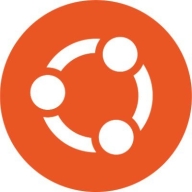

Ubuntu Linux and Alpine Linux compete in the Linux ecosystem, targeting different user needs. Ubuntu Linux generally has an advantage in terms of support and community resources due to its comprehensive desktop environment.
Features: Ubuntu Linux includes a comprehensive desktop environment with a diverse range of applications and integrated services. It offers major driver support and extensive application compatibility. Alpine Linux focuses on a lightweight architecture designed for security. Its minimal approach ensures a small attack surface, making it ideal for efficiency and minimal configurations.
Ease of Deployment and Customer Service: Ubuntu Linux provides a straightforward deployment process supported by abundant documentation and community forums. Its extensive support options cater to both enterprises and individual needs. Alpine Linux, requiring more technical expertise, favors experienced users with its minimalistic setup. It offers a leaner installation process appealing to users desiring a stripped-down system with low overhead.
Pricing and ROI: Ubuntu Linux is available free with paid support options, offering a cost-effective solution with extensive capabilities. Alpine Linux is free and allows for minimal resource deployment, potentially leading to long-term savings. The cost structure of both systems provides value, though Alpine's approach may cater better to those seeking a minimal infrastructure.
| Product | Market Share (%) |
|---|---|
| Ubuntu Linux | 11.5% |
| Alpine Linux | 2.2% |
| Other | 86.3% |

| Company Size | Count |
|---|---|
| Small Business | 84 |
| Midsize Enterprise | 21 |
| Large Enterprise | 52 |
Alpine Linux is an independent, non-commercial, general purpose Linux distribution designed for power users who appreciate security, simplicity and resource efficiency.
Alpine Linux is built around musl libc and busybox. This makes it small and very resource efficient. A container requires no more than 8 MB and a minimal installation to disk requires around 130 MB of storage. Not only do you get a fully-fledged Linux environment but a large selection of packages from the repository.
Ubuntu Linux is an open-source platform known for its robust security, ease of use, and rapid performance. Its lightweight design and comprehensive support system make it ideal for diverse IT environments, providing seamless management and scalability options.
Ubuntu Linux stands out with its open-source nature that allows extensive customization and access to a broad range of free software. It is widely praised for its stability and a vast package repository offering regular updates, enhancing its usefulness across different sectors. The platform is equipped with a lightweight design and excellent community support, making it scalable and easy to manage. While it could improve in areas like Windows software compatibility and user interface refinement, its benefits in enterprise management and development projects are undeniable. Improved documentation, better hardware integration, and enhanced third-party application compatibility are additional focal points to consider.
What are the key features of Ubuntu Linux?
What benefits should be considered from reviews?
Ubuntu Linux is prominently implemented in industries for tasks such as server management, application deployment, and software development. Its resource efficiency and open-source tool compatibility make it a favorite for programming, research, and cybersecurity. Companies frequently use it for web hosting, cloud services, and managing multi-user enterprise solutions.
We monitor all Operating Systems (OS) for Business reviews to prevent fraudulent reviews and keep review quality high. We do not post reviews by company employees or direct competitors. We validate each review for authenticity via cross-reference with LinkedIn, and personal follow-up with the reviewer when necessary.